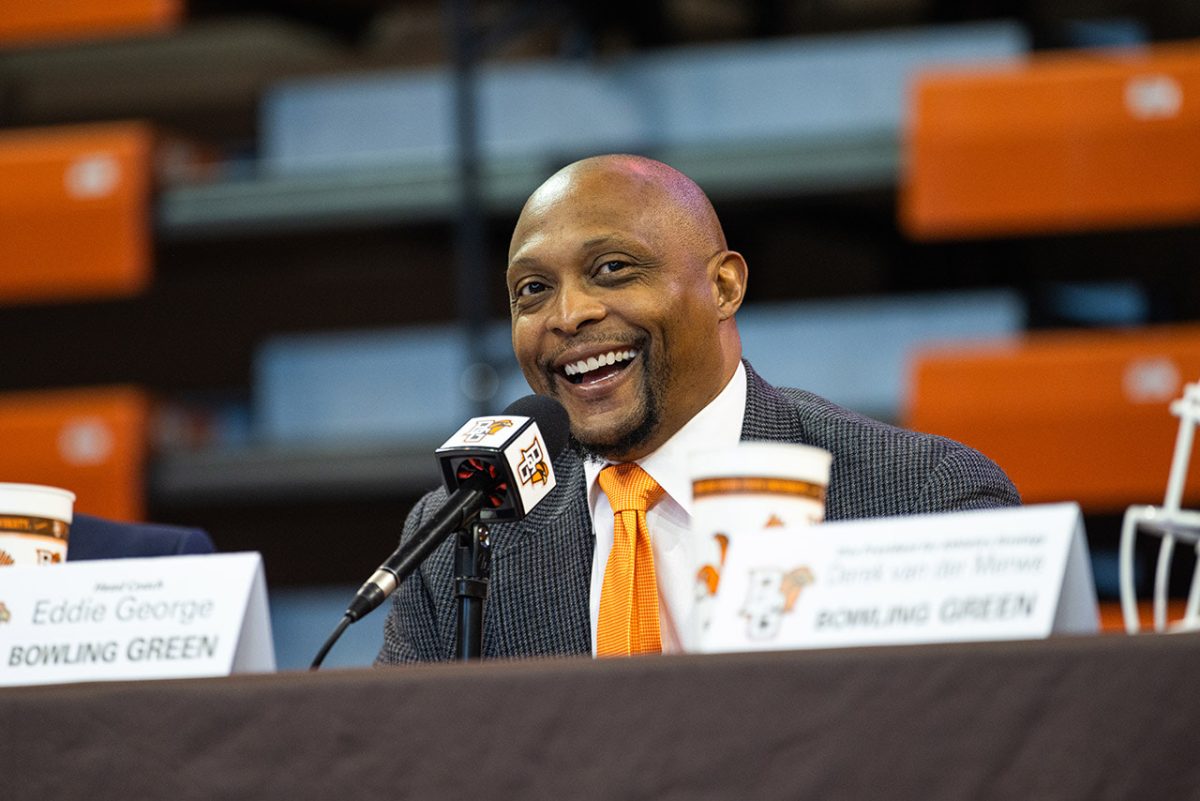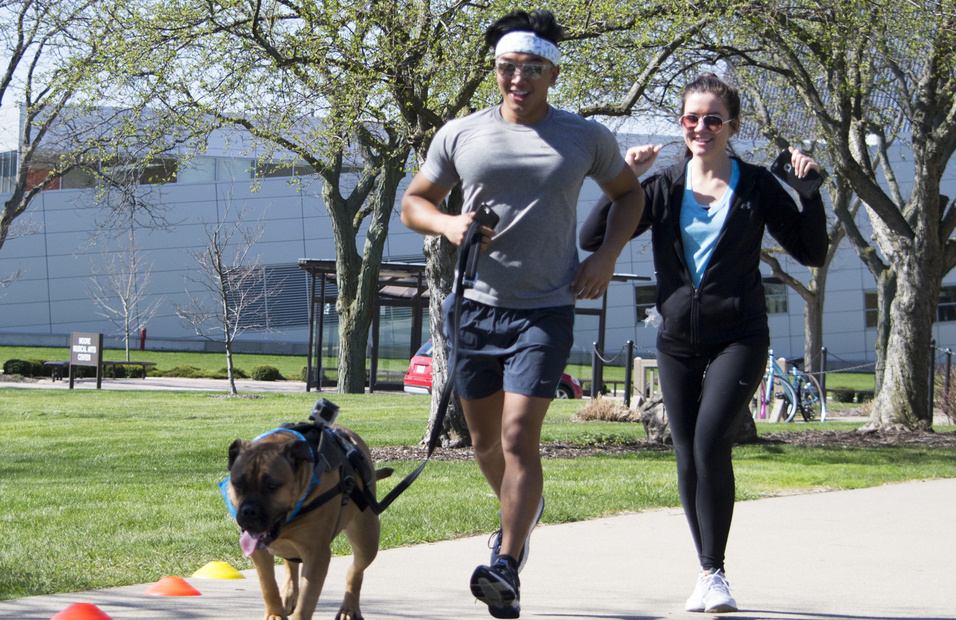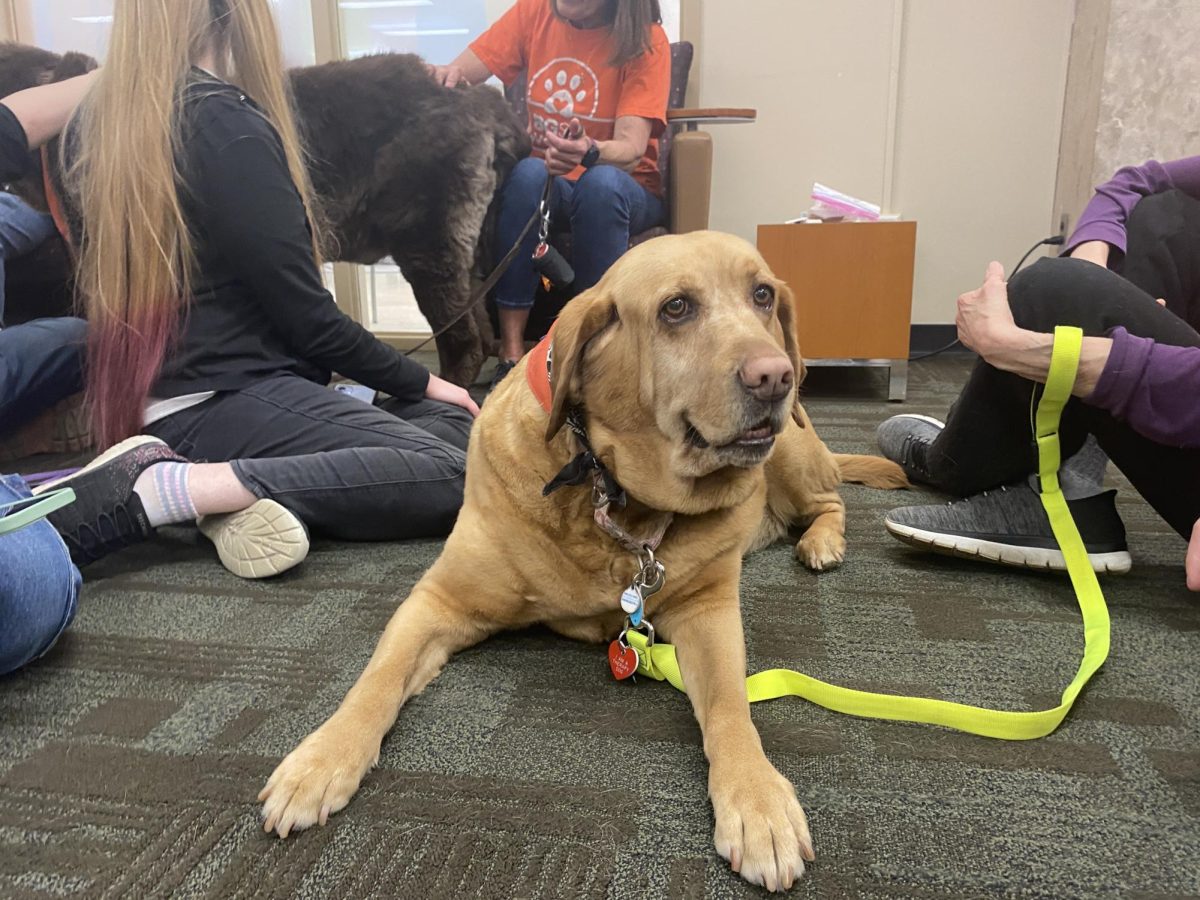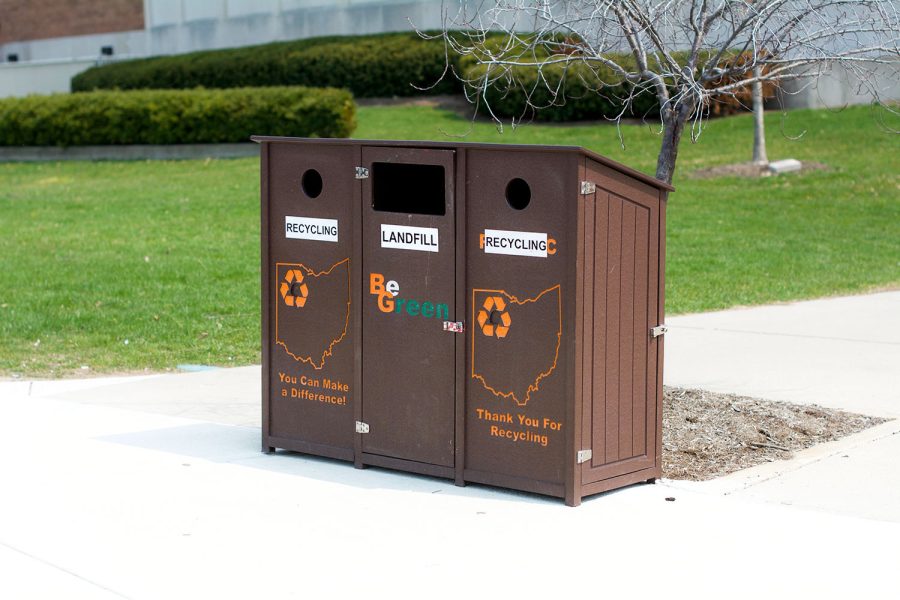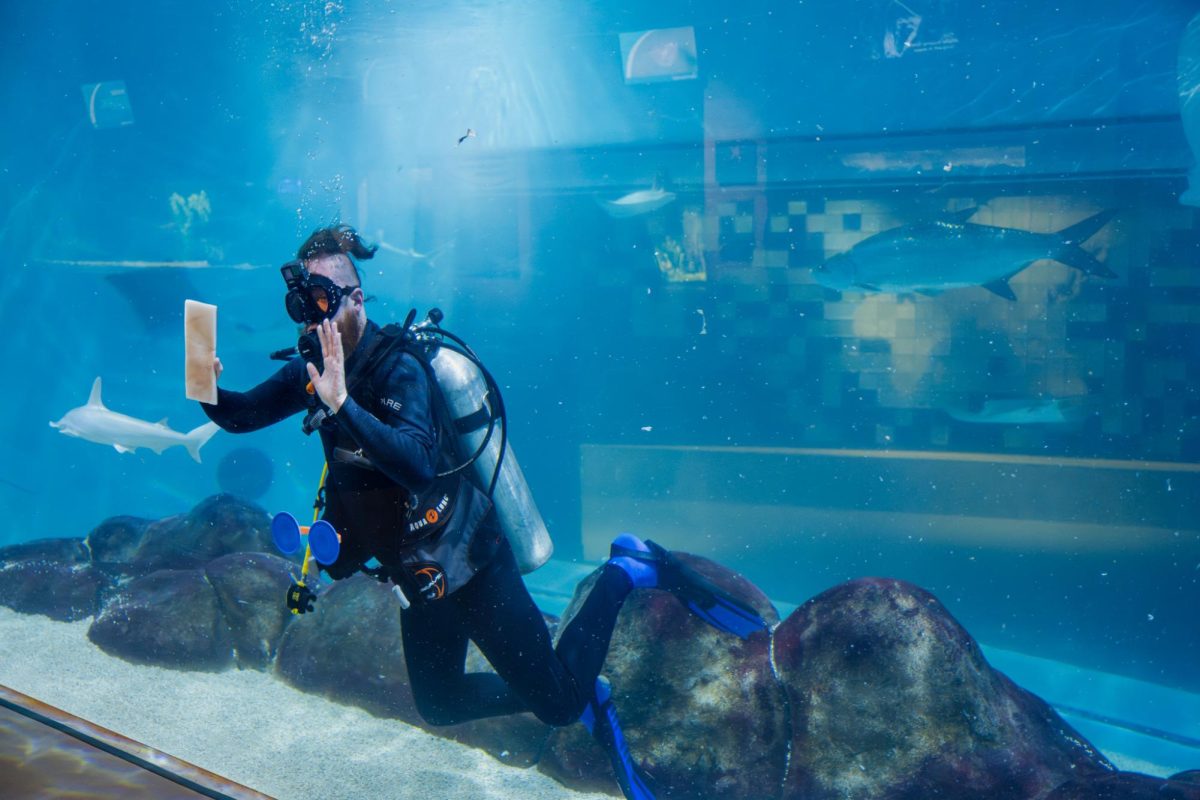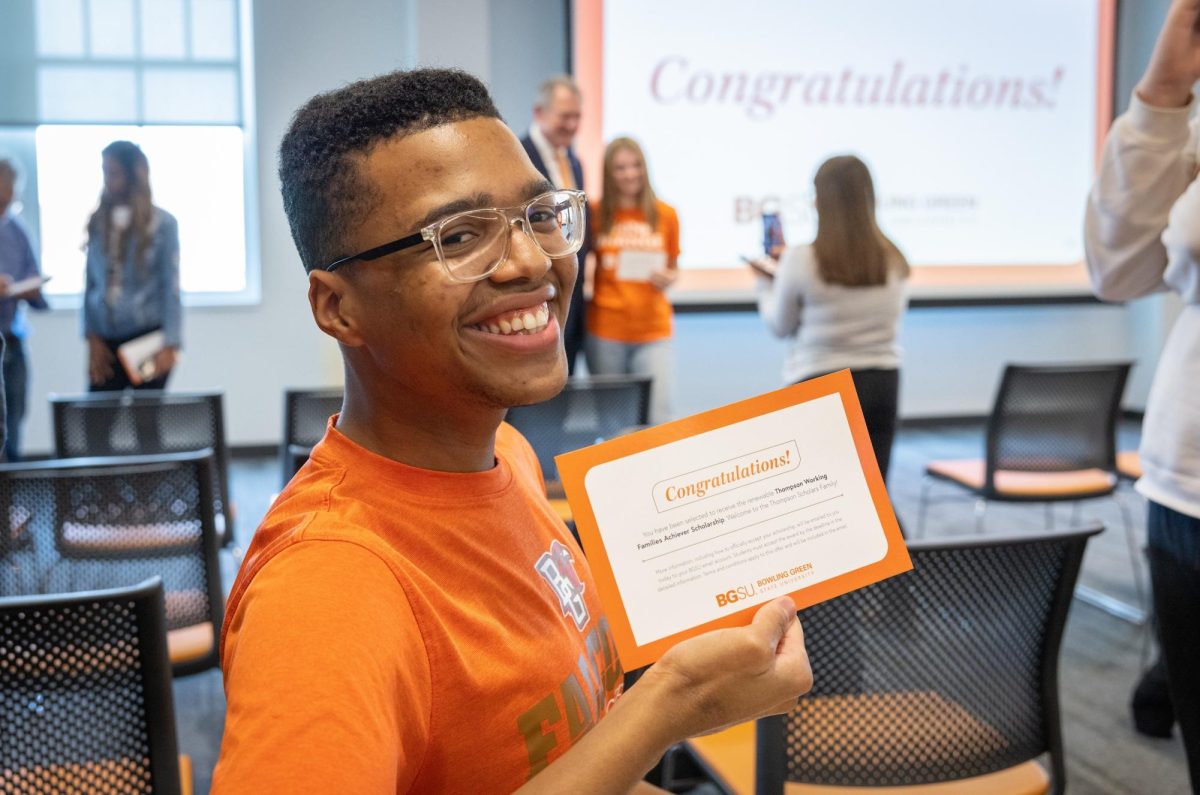Polka music played through the Lenhart Grand Ballroom Thursday night, accompanied by people dressed in traditional lederhosen, munching on bratwurst and enjoying sauerkraut. They were all gathered to celebrate Oktoberfest.
The event was sponsored by the University’s German Club and catered by the University. Since its start almost 20 years ago, the event has grown into a much larger celebration. Retired University professor Wally Pretzer and German Club adviser Kristie Foell have helped shape Oktoberfest into what it is today.
“I organized the first Oktoberfest with German Club in 1997,” Foell said. “(Originally, Oktoberfest) was held off campus with no alcohol. We had an apple cider-chugging contest, and the students in German Club made all of the food for the event themselves.”
Today, the event has grown and now brings over 300 people each year to the Union.
Authentic German beers could be purchased by those of age, a professional polka band out of Kentucky provided the entertainment for the evening and the food was prepared by Chef Jeremy, who works in the Union.
Although the food and music add authenticity to the evening, Foell said the goal of Oktoberfest is to spread parts of German culture.
“I like seeing all of my friends get together and dance and have a good time,” Foell said. “(Oktoberfest) is a multi-generational event, so we see young and old come and celebrate German heritage.”
Polka dancers Roger and Ruth Jimenez were in attendance. This was their second year at the University’s Oktoberfest. The couple has been dancing together for over 40 years.
“I like the whole event. The food. The students,” Ruth Jimenez said. “We really like the music, so we have to dance.”
The Jimenezes also attend the German Fest in Toledo and go to the Bavarian Haus in Deshler, Ohio, to immerse themselves in German culture. The couple worries that these unique fests will become a thing of the past.
“These events are to maintain the German culture, which is disappearing,” Ruth Jimenez said. “When we used to go dancing, the halls were full. But now, there are less and less people dancing (the traditional polka).”
The President of German Club, Molly Closson, spoke at Oktoberfest and stressed the importance of German culture, saying the purpose of the event is “remembering our roots and heritage.”
Foell also shares the feelings of the Jimenez’s and Closson.
“My hope is that after people come to the event, they will want to learn more about German culture. There is more to their culture than Oktoberfest. It’s not the only thing that’s interesting about them,” Foell said. “Students can learn more by joining German Club.”



